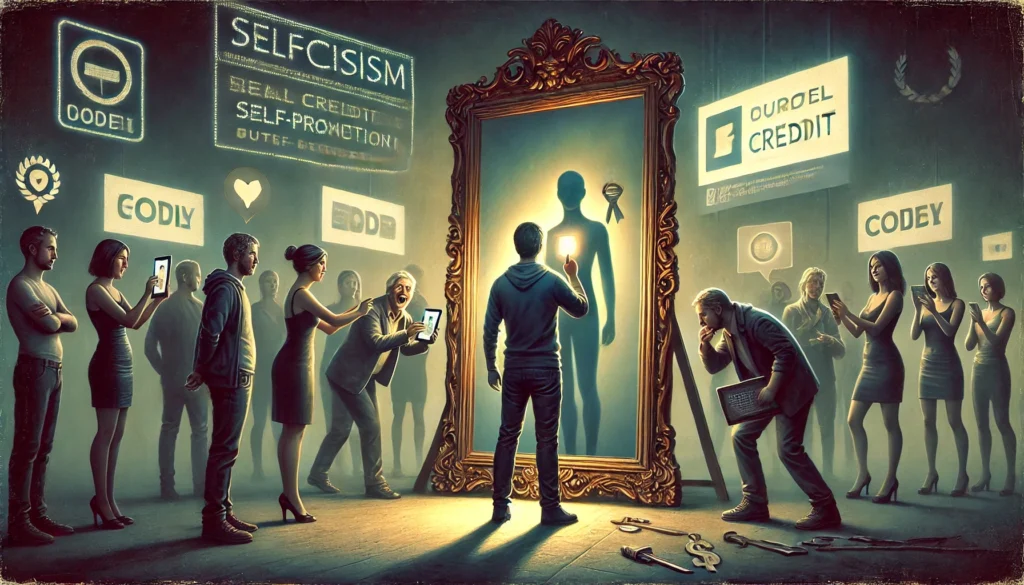
Let’s face it: generational finger-pointing is everyone’s favorite pastime. Millennials and Gen Z—today’s young(ish) adults—are routinely labeled as narcissistic, entitled, selfie-addicted Instagram influencers-in-the-making. The logic? If you’ve ever taken a photo of your brunch and posted it for admiration, or listed “CEO of My Own Life” in your social media bio, you’re already guilty of narcissism.
The Boomers: The Original Self-Made Generation
First, let’s start with the Boomers. Born post-World War II, Boomers are often regarded as the most hardworking, responsible, and resourceful generation to grace the planet—just ask them. They pioneered a societal model that preached rugged individualism (cue John Wayne music), staking their identities on ideas like “pulling oneself up by the bootstraps” and never needing anyone else’s help, even when it was a bit of a group effort (public services, government programs, and such).
So, are Boomers narcissistic? Well, let’s just say they redefined what it means to be “self-made.” If this sounds like the first stage of “pathological grandiosity,” we might be onto something. Many Boomers cultivated strong self-images by claiming credit for personal successes, sometimes overlooking the larger, communal support systems that made their achievements possible. And what is narcissism if not the art of inflating one’s accomplishments?
Boomers’ brand of narcissism may not have looked like an Instagram grid, but if you peel back the layers of their social and cultural ideals, you’ll find plenty of self-aggrandizement hiding under the surface. Theirs was a narcissism expressed through values of hard work and individualism. And here’s the kicker: much of that “entitlement” they accuse Millennials and Gen Z of stems from a generational legacy they built.
Gen X: The Rebels Without Applause
Then there’s Gen X, the “latchkey” generation, best known for feeling underappreciated. With both parents typically working, they were often left to their own devices, which bred a unique brand of “independent” (read: somewhat cynical) narcissism. Gen X’s narcissism is stealthy, wrapped up in a grunge aesthetic of “I don’t care” and “don’t look at me” while secretly harboring a desire for someone to see how unique and different they are.
This generation’s narcissism, if it exists, is less overt than other generations’. They weren’t exactly flooding social media with selfies, but their version of narcissism shows up as a fierce independence streak coupled with a chip on their shoulder for being overlooked. After all, Gen X had to make peace with being sandwiched between two larger and louder generations, which would be enough to make anyone feel slighted. Their “rebellion” wasn’t for fame; it was a shrug to the establishment—but if the establishment happened to look their way, well, that wouldn’t be entirely unwelcome.
Millennials: The Therapy Generation
Now, onto the Millennials, the avocado-toast-loving, commitment-phobic, participation-trophy-bearing generation that Boomers and Gen X love to call “entitled.” This cohort is often accused of suffering from a collective case of main character syndrome.
Gen Z: The Aesthetic Curators of Identity
Finally, there’s Gen Z, the generation raised on Snapchat filters and TikTok fame. Gen Z gets the “narcissist” label because, well, they’re quite literally building “brands” out of their personalities from the age of 12. They don’t just post pictures; they curate vibes.
They may curate every detail of their online lives, but their vanity isn’t just skin-deep.
So, Are Millennials and Gen Z More Narcissistic?
Are they more narcissistic? Probably not. They’re just more visible in their narcissism, and they’re channeling it in different ways. Boomers’ self-focus might have looked like “rugged individualism,” Gen X’s like “independence,” but today’s narcissism has evolved into a more complex, self-reflective, and yes, digitally enhanced variety.
Final Verdict
Every generation has its flavor of narcissism.

